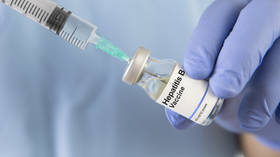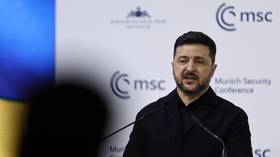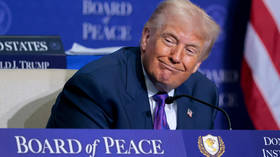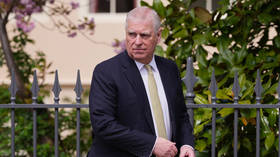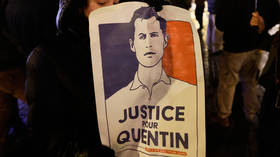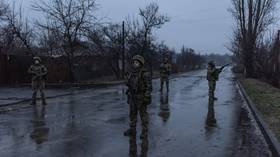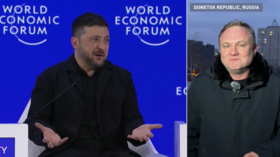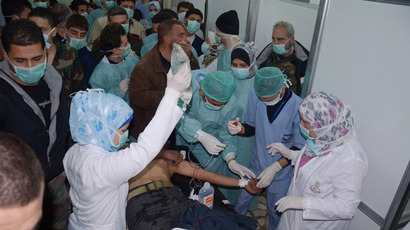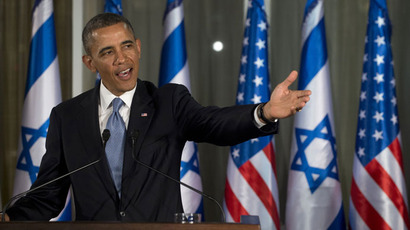UK ‘confirms’ use of chemical weapons in Syria after secret MI6 op – report
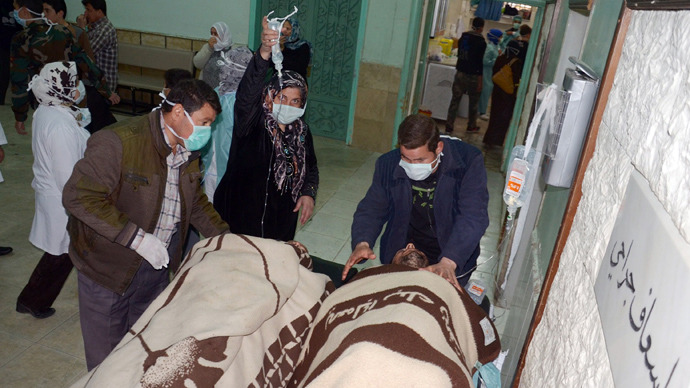
The UK Ministry of Defense has claimed that chemical weapons were used in the Syrian conflict. Forensic evidence was collected after scientists analyzed soil smuggled out of the country in a secret British operation, the Times reported.
The sample was reportedly extracted from a neighborhood on the
outskirts of Damascus in March by MI6 agents operating within
Syria, the Australian reported at the time.
The soil was then smuggled out of Syria and handed over to UK Ministry of Defense’s chemical and biological research department.
Military scientists said the soil contained traces of “some
kind of chemical weapon,” though they could not positively
identify the type of weaponized chemical.
“There have been some reports that it was just a strong
riot-control agent but this is not the case – it’s something else,
although it can’t definitively be said to be sarin nerve
agent,” one source told the Times.
The British team was unable to say whether the chemical had been
used by Syrian government forces or rebel fighters battling to
topple the government of President Bashar Assad. They were further
unable to determine to what extent chemical weapons had been used
in the ongoing civil war.
The analysis provided the basis for diplomatic reports on Thursday
that the West had “hard evidence” that chemical weapons had
been deployed over the course of the two-year conflict.
“In one case, we have hard evidence,” one diplomat was
quoted by AFP as saying, adding that “there are several examples
where we are quite sure that shells with chemicals have been used
in a very sporadic way.”

The Ministry of Defense has yet to comment on the report, though the UK Foreign Office told AFP it was
“deeply concerned” about the potential use of chemical weapons.
"We have shared our concerns with the UN secretary general and fully support his decision to investigate,” a spokesperson said.
"The use of chemical weapons would be a horrific crime. Those who order the use of chemical weapons, and those who participate in their use, will be brought to account," they continued.
The soil analysis conducted by the UK team has yet to be scrutinized by an independent body.
On Monday, UN Secretary-General Ban Ki-moon pressed Damascus to accept an expanded UN inquiry into alleged chemical weapons use in the country.
Assad previously called on the UN to investigate reports that
“a missile containing a chemical substance” was fired by
“terrorists” in the village of Khan Assal near Aleppo in March, killing 30 and injuring 80 more.

However, the investigation stalled after Damascus refused to allow UN inspectors to go anywhere but Aleppo, even though reports have surfaced of similar attacks in Homs and near Damascus the same month.
During a state visit to Israel in March, US President Barack
Obama said the use of chemical weapons in Syria would be a “game
changer.” In reference to the Aleppo attack, Obama said he
planned on working with other countries in the region and
international organizations and institutions to “find out
precisely whether this red line was crossed.”
However, sources within the British Department of Defense told the
Times the discovery had not provided the “Iraq moment” – a
deadly 1988 chemical attack by Saddam Hussein against Kurds in
Halabja.
They added that the evidence might not provide a “smoking
gun,” demonstrating that Damascus had crossed the “red
line” for direct US action outlined by Obama.






